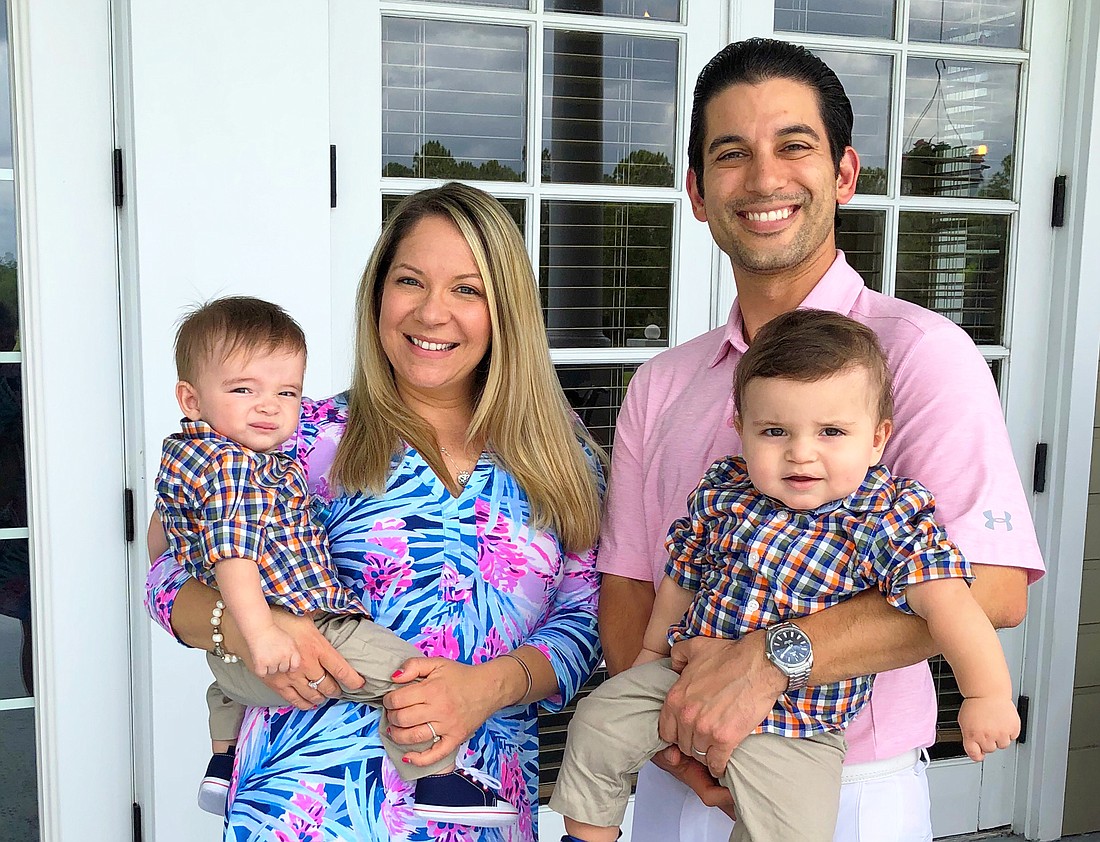
By Alessandro Apolito, JBA Young Lawyers Section president
This year, I celebrated my first Father’s Day and feel compelled to share the choice I made to take paternity leave.
On Aug. 20, my life changed forever. My wife, Lauren, gave birth to our twin boys, Valentino and Massimo. Their birth was the best thing that has happened in our lives.
Before their arrival, we had to make many important decisions, including the hospital at which my wife was going to give birth, whether or not to vaccinate them, making sure we had enough diapers and wipes, and choosing the right shade of blue for the nursery.
As an attorney, I had another big decision to make: Should I take paternity leave after they were born?
Like all good lawyers trying to answer a question, I did my research. I reviewed the employee handbook of the firm I was with, I asked other fathers and read articles online.
My former firm had a parental leave policy, which was consistent with the Family and Medical Leave Act, but left pay during leave up to the discretion of the management committee. Other fathers I talked to took anywhere from one day to two weeks of leave after the birth of their children.
I gathered from speaking with fathers that taking paternity leave was frowned upon or regarded as something that men, especially lawyers, do not do.
That stance became so obvious during my discussions with some fathers that I began to feel guilty for considering taking paternity leave.
According to fatherly.com, 92 countries offer paternity leave, but the U.S. does not. Further, only a few states mandate paid parental leave: New York, California, New Jersey, New Hampshire and Washington, D.C., have laws in place requiring employers to provide paid leave to employees.
Therefore, it is no surprise that so many fathers shy away from taking meaningful paternity leave. Our culture does not entirely support it and you are not likely to get paid.
After more research, I realized the right amount of paternity leave was a personal choice that is unique to each person’s situation.
I needed to decide the amount of time that would allow me to start establishing a connection with my sons, help my wife and sons as much as I could, start learning how to be a father and to love them as much as I could without any distraction. I decided to take one month paid paternity leave.
When I delivered the news to my firm, I received full support. My colleagues, both attorneys and staff, covered all of my work while I was gone. I will always be grateful to them for allowing me to do this.
The day after my sons were born, I disabled my work email on my phone, put my computer away and embarked on an amazing, yet very difficult, nearly uninterrupted month of paternity leave. I focused on being a father and husband, while my colleagues managed my clients and workload. Just as I expected, when I returned, everything was in order and my “work world” was still revolving on its axis.
In fact, when I returned, my colleagues and clients were eager to hear about my newborns and see pictures. No one expressed any resentment that I took leave.
To all employers, I strongly urge you to support your expecting male attorneys to take a meaningful paternity leave. You can attract great employees and build loyalty to your firm.
As a partner at a law firm, I know the potential logistical issues this could cause for your office and the financial implications of paying someone who is not producing.
However, with high turnover in the practice of law, employers should consider offering meaningful paternity leave as a way to attract and retain talented lawyers. High turnover is much more expensive for an employer than a reasonable amount of paternity leave for an employee.
My advice to future fathers is to try to take as much paternity time as possible without compromising your employment. If you cannot take all of your leave at once, consider breaking it up into two parts.
I know this is easier said than done, but for those who fear judgment or retribution from their employers and colleagues, ask yourself if that is the type of office you want to be associated with in your career.
I realize that my stance on paternity leave may not be widely accepted in the legal community. The purpose of sharing my story is to shed light on a topic that is taboo despite the fact that it is relevant to all families.
I want to encourage and empower new fathers to choose precious time with their newborn over billable hours and work. If you don’t do it now, you could set yourself up to choose work over family more than you want to in the future.
Alessandro Apolito is a partner at Lippes Mathias Wexler Friedman who practices in the area of trusts and estates.